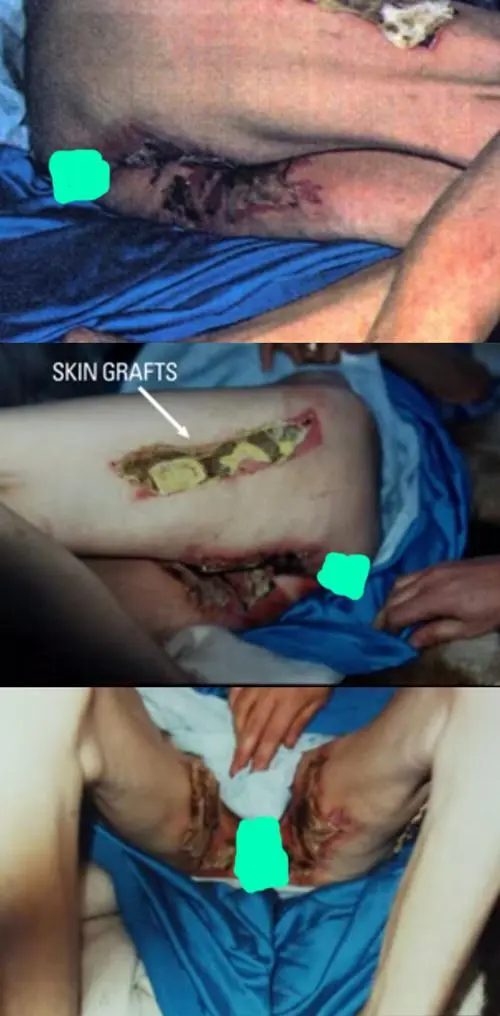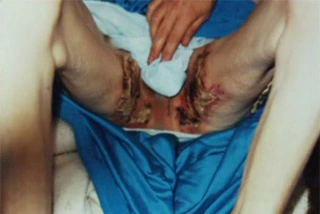MacDonald’s Coffee Lawsuit Burn Pictures the Facts Behind the Controversies MacDonald’s Lawsuits
The legal investigations surrounding McDonald’s hot coffee have captured national attention, with many people misinterpreting the facts surrounding these lawsuits. Often, these cases are labeled as “frivolous lawsuits,” but in reality, they raise serious concerns about consumer safety and corporate responsibility. Two notable incidents — the 1992 case of Stella Liebeck and the 2023 case of Mable Childress — continue to highlight the dangers of excessively hot coffee and the legal consequences of corporate negligence.
Table of Contents
Stella Liebeck’s 1992 Lawsuit: The Birth of a Legal Controversy
- The Incident: In February 1992, 79-year-old Stella Liebeck bought a cup of McDonald’s takeout coffee at a drive-thru in Albuquerque, New Mexico. After receiving the coffee, Liebeck, who was the passenger in a car parked in the McDonald’s parking lot, placed the cup between her knees while she attempted to add cream and sugar. When the lid came off, the hot coffee spilled all over her lap, causing severe burns.
- The Burns: The coffee was served at a dangerously high temperature — between 180°F and 190°F, which is much hotter than typical coffee served by most other establishments. This temperature is high enough to cause third-degree burns in just a few seconds. Liebeck’s injuries were serious: she suffered third-degree burns on her thighs, requiring skin grafts, and was hospitalized for eight days.
- The Legal Battle: Liebeck sought to settle the case with McDonald’s for $20,000 to cover her medical expenses and lost income. McDonald’s only offered $800, which led to a trial. During the trial, it was revealed that McDonald’s had received more than 700 complaints from customers who had suffered burns due to the excessively hot coffee. Expert witnesses testified that the temperature at which McDonald’s served its coffee was far above the safe consumption threshold and could cause severe injuries.
A jury awarded Liebeck $200,000 in compensatory damages (later reduced) and $2.7 million in punitive damages (later reduced by the judge). The jury’s decision was based on McDonald’s blatant disregard for the safety of its customers, despite being aware of the risks for over a decade.
- The Outcome and Public Reaction: The case was widely misunderstood by the media and the public. Critics painted Liebeck as a greedy opportunist, using the case as an example of frivolous lawsuits and “jackpot justice.” However, the reality was that McDonald’s had been informed of the dangers of its coffee and failed to act. Eventually, McDonald’s settled with Liebeck for an undisclosed amount after the punitive damages were drastically reduced.
Related Articles For You:
Sophia Stewart Lawsuit vs. Hollywood: Fact, Fiction, and the Truth About The Matrix Lawsuit






Mable Childress’s 2023 Lawsuit: A New Chapter
- The Incident: In June 2023, 85-year-old Mable Childress ordered coffee from a McDonald’s drive-thru in San Francisco. She placed the coffee cup in her car’s cup holder and drove to her foot doctor’s office. Upon arriving and attempting to drink the coffee, she discovered that the lid was not properly secured, causing the coffee to spill onto her lap. The spill resulted in burns on her stomach, groin, and legs.
Childress reported the incident to McDonald’s, but none of the employees filled out an incident report, and no action was taken at the time. Her attorney, Dylan Hackett, argued that McDonald’s was negligent in failing to secure the lid properly, leading to Childress’s injuries. She is now suing McDonald’s in California Superior Court for medical expenses and emotional distress, seeking to hold the company accountable for its negligence.
- Comparison to Liebeck’s Case: While Childress did not suffer third-degree burns like Liebeck, her case draws parallels to the infamous 1992 lawsuit. Hackett, Childress’s attorney, acknowledges that the precedent set by Liebeck’s case will influence the outcome of her lawsuit. Childress hopes to prevent other customers from facing similar accidents by ensuring McDonald’s addresses the safety issues related to hot beverages.
- Corporate Response: McDonald’s stated that it follows strict food safety protocols, including securing lids on hot beverages. The company expressed that it takes all customer complaints seriously. However, this recent case suggests that McDonald’s continues to face issues with its coffee’s safety standards and employee accountability.
The Public’s Misunderstanding and Media Sensationalism
- Frivolous Lawsuit Myth: The Liebeck case became infamous, often cited as an example of a frivolous lawsuit. Critics claimed that Liebeck was simply trying to cash in on an accident where she had spilled the coffee herself. However, this view ignores the key facts of the case, including McDonald’s knowledge of the risks and its failure to warn consumers about the potential dangers.
Liebeck’s case is often misunderstood because of the media’s oversimplification of the facts. For example, many people believed that Liebeck was driving when she spilled the coffee, but in reality, she was a passenger in a parked car. Moreover, the coffee’s excessive temperature and McDonald’s failure to act despite prior complaints were central to the jury’s decision.
- Media Impact: The media and public misinterpretation of the case led to a broader campaign against “tort reform,” which aimed to cap damages in personal injury lawsuits. The case became a cultural reference point, even appearing in TV shows and songs, often distorting the facts for comedic effect. However, for those who examined the full details, it was clear that the case was about the company’s negligence and disregard for consumer safety.
Legal Precedents and Corporate Responsibility
- Ongoing Legal Concerns: McDonald’s has faced numerous lawsuits related to its hot coffee, including a recent case in Florida where a 4-year-old girl suffered second-degree burns from a hot Chicken McNugget. These cases highlight ongoing concerns about food safety standards and the company’s practices regarding the temperature of its products.
- Corporate Accountability: McDonald’s has continued to defend its practices, arguing that the number of injury claims is relatively small compared to the billions of cups of coffee it sells annually. However, this view fails to consider the human cost of each injury and the company’s responsibility to prevent harm.
- The Legal Impact: The legal precedents set by the Liebeck case have influenced other lawsuits against McDonald’s, including the 2023 case involving Childress. These cases have forced the company to reconsider its policies and practices regarding the temperature of its coffee and the safety measures it employs in its stores.
Conclusion The Larger Picture
The McDonald’s hot coffee lawsuits — particularly the Stella Liebeck case and the more recent Mable Childress case — are not simply examples of “frivolous lawsuits” but are critical reminders of the importance of corporate responsibility and consumer safety. McDonald’s failure to address the risks posed by its excessively hot coffee led to significant legal consequences and continues to be a point of contention. These lawsuits highlight the need for companies to act responsibly and prioritize consumer safety, rather than simply defending their practices in the face of preventable harm.
By understanding the full details of these cases, including the corporate negligence and legal implications, it becomes clear that these lawsuits were about more than just a hot cup of coffee; they were about ensuring companies like McDonald’s take responsibility for the safety of their customers.
About the Author

Sarah Klein, JD, is a licensed attorney and legal content strategist with over 12 years of experience across civil, criminal, family, and regulatory law. At All About Lawyer, she covers a wide range of legal topics — from high-profile lawsuits and courtroom stories to state traffic laws and everyday legal questions — all with a focus on accuracy, clarity, and public understanding.
Her writing blends real legal insight with plain-English explanations, helping readers stay informed and legally aware.
Read more about Sarah
